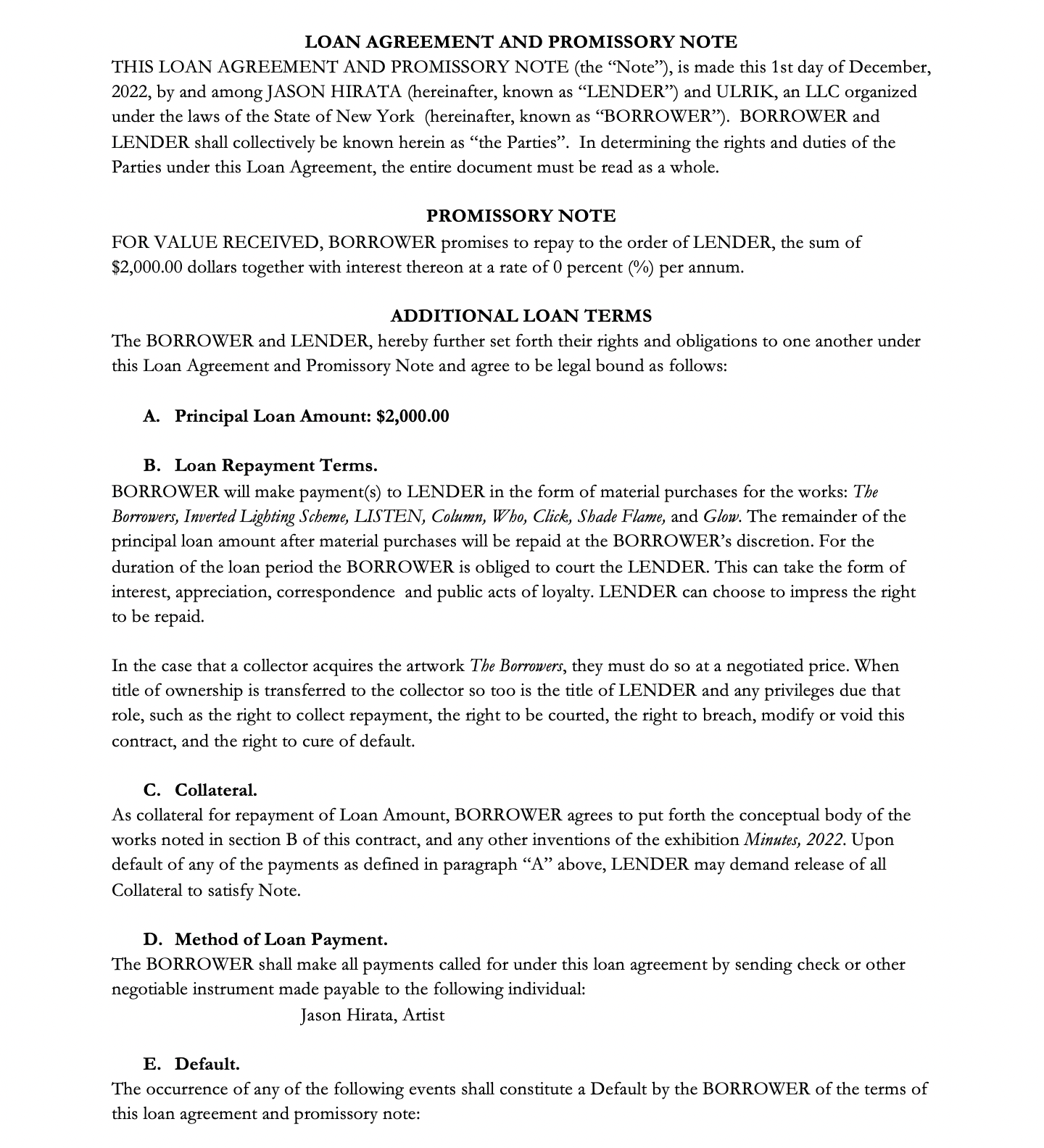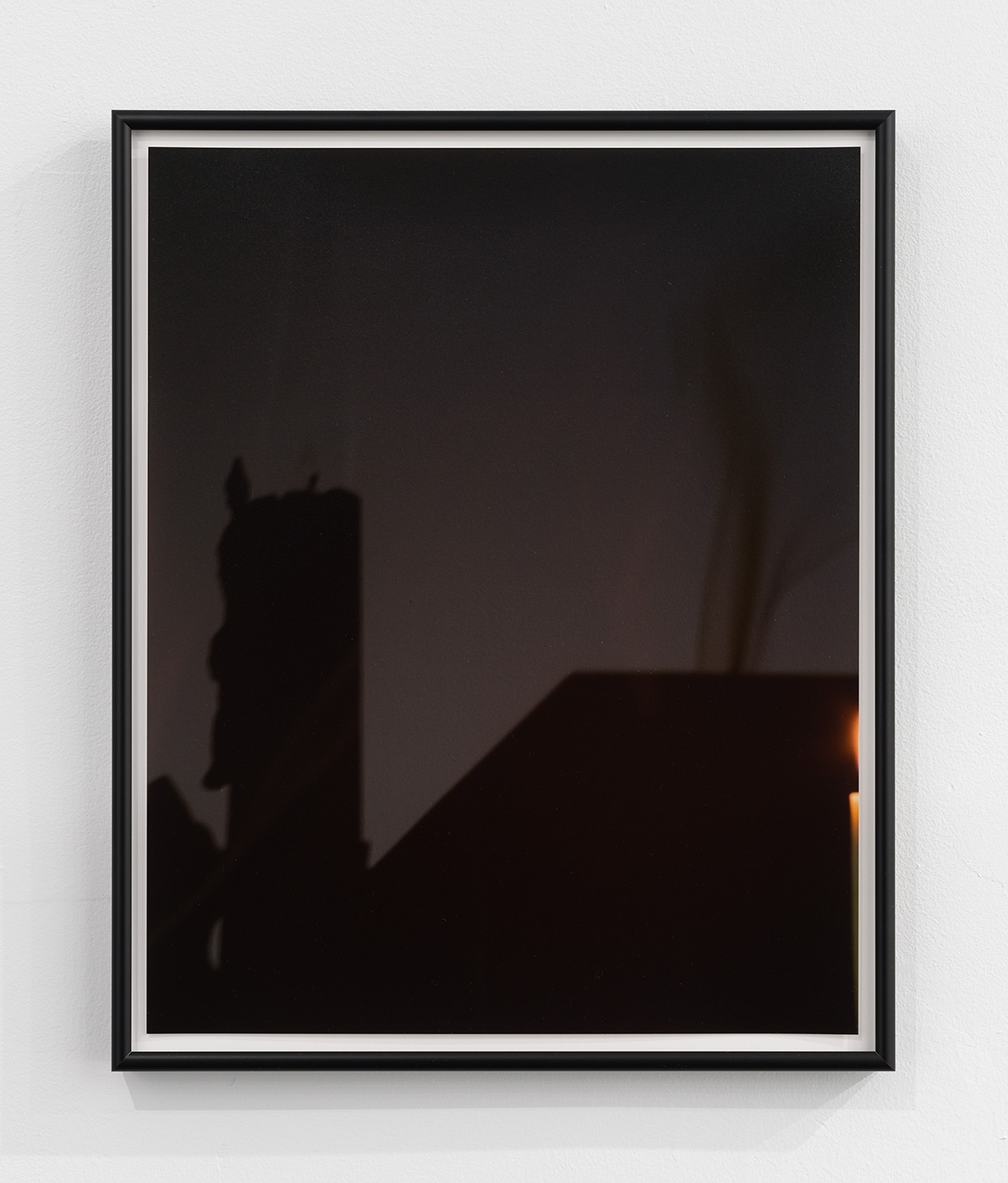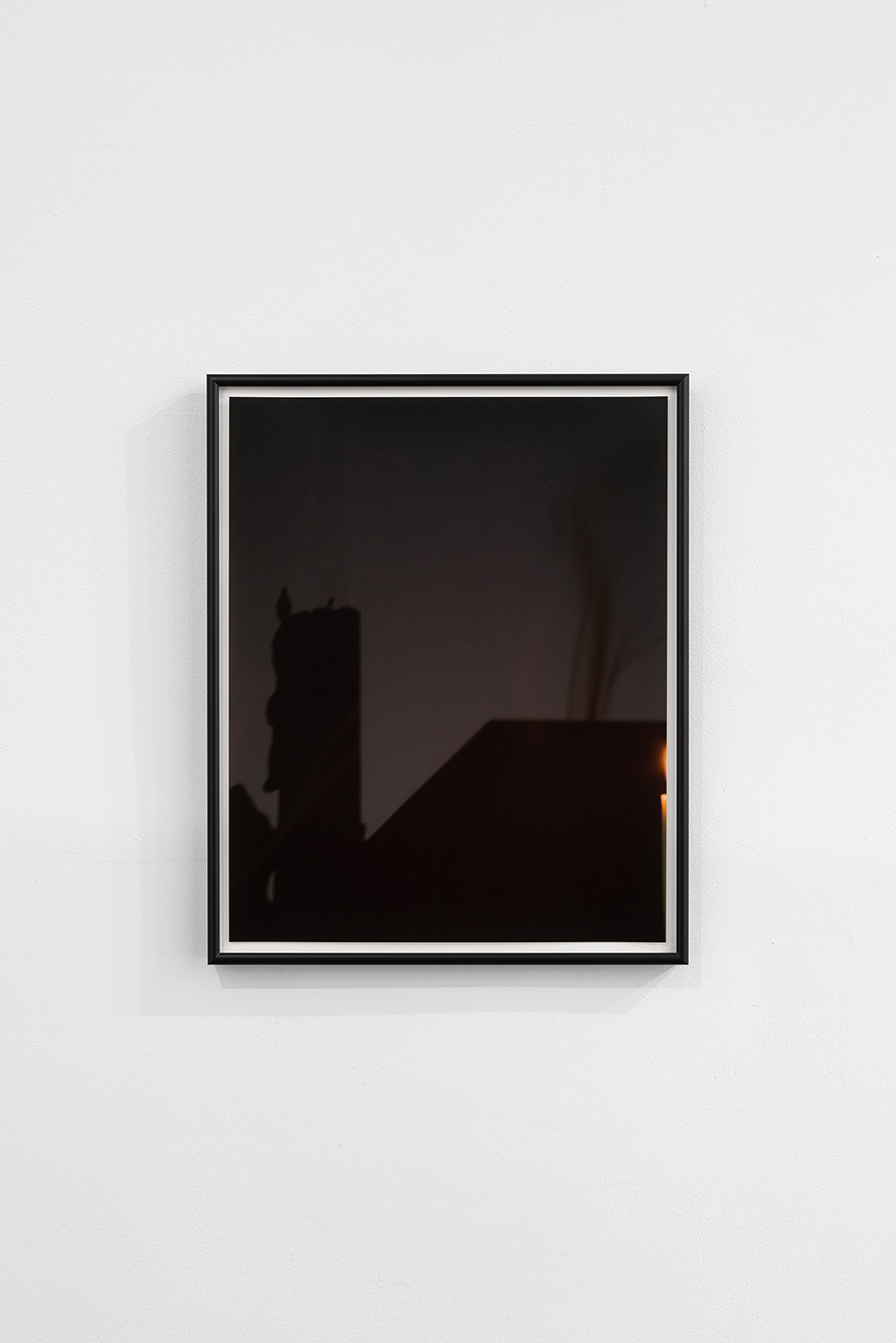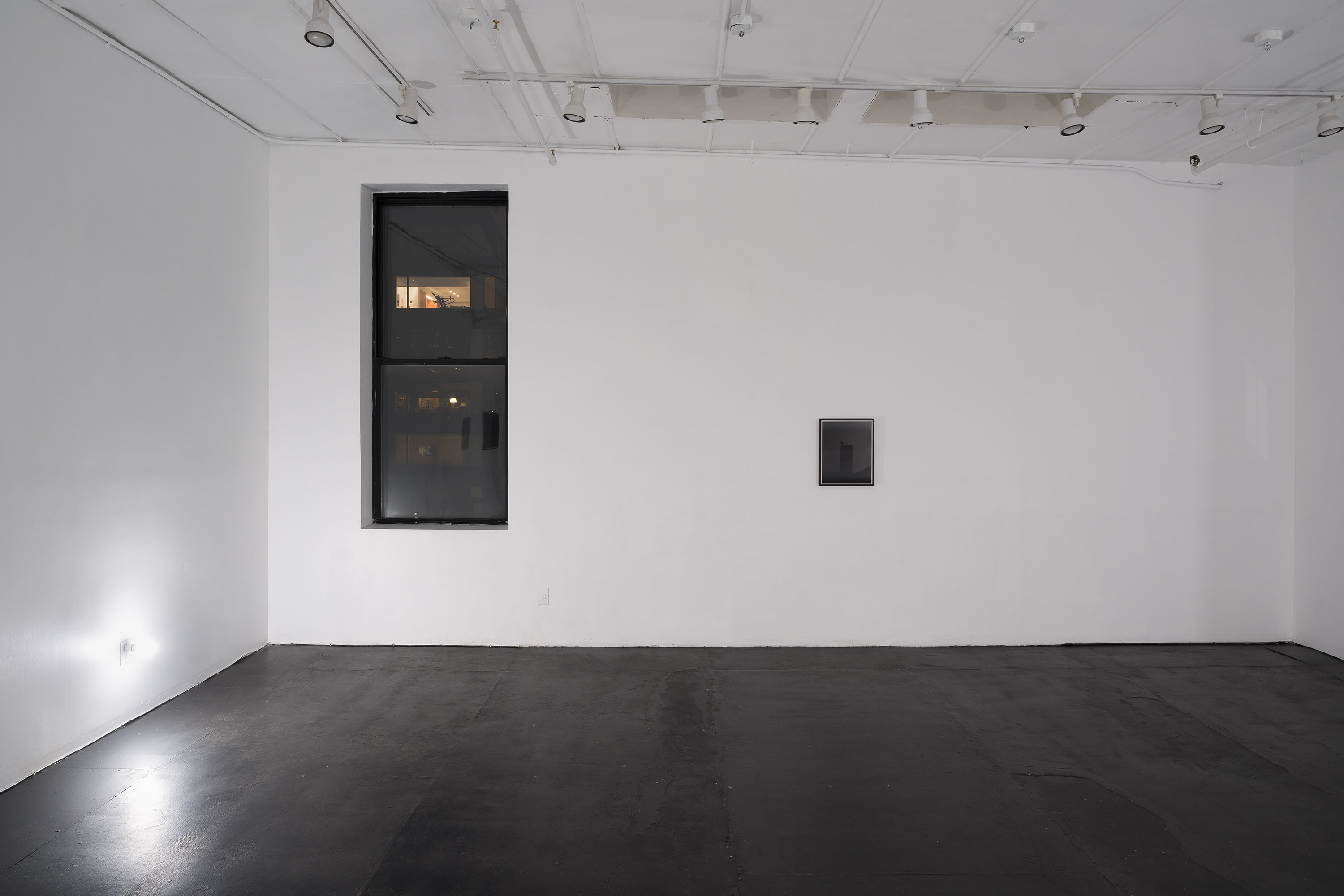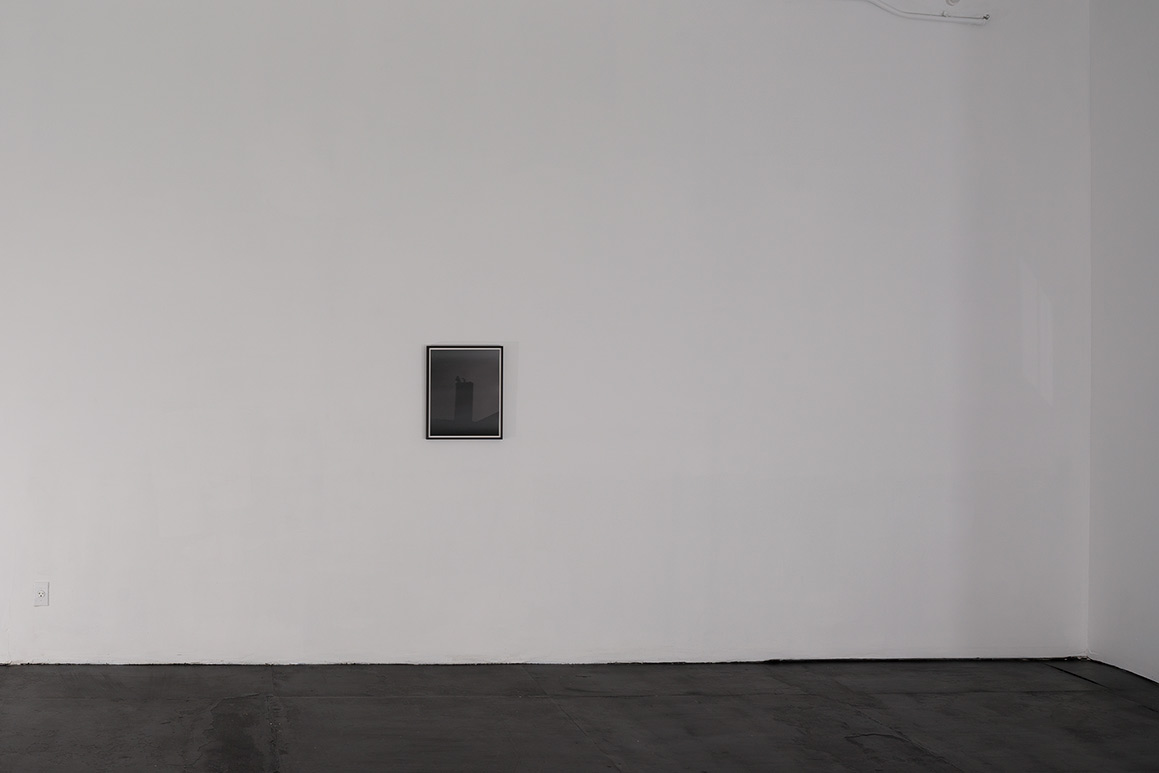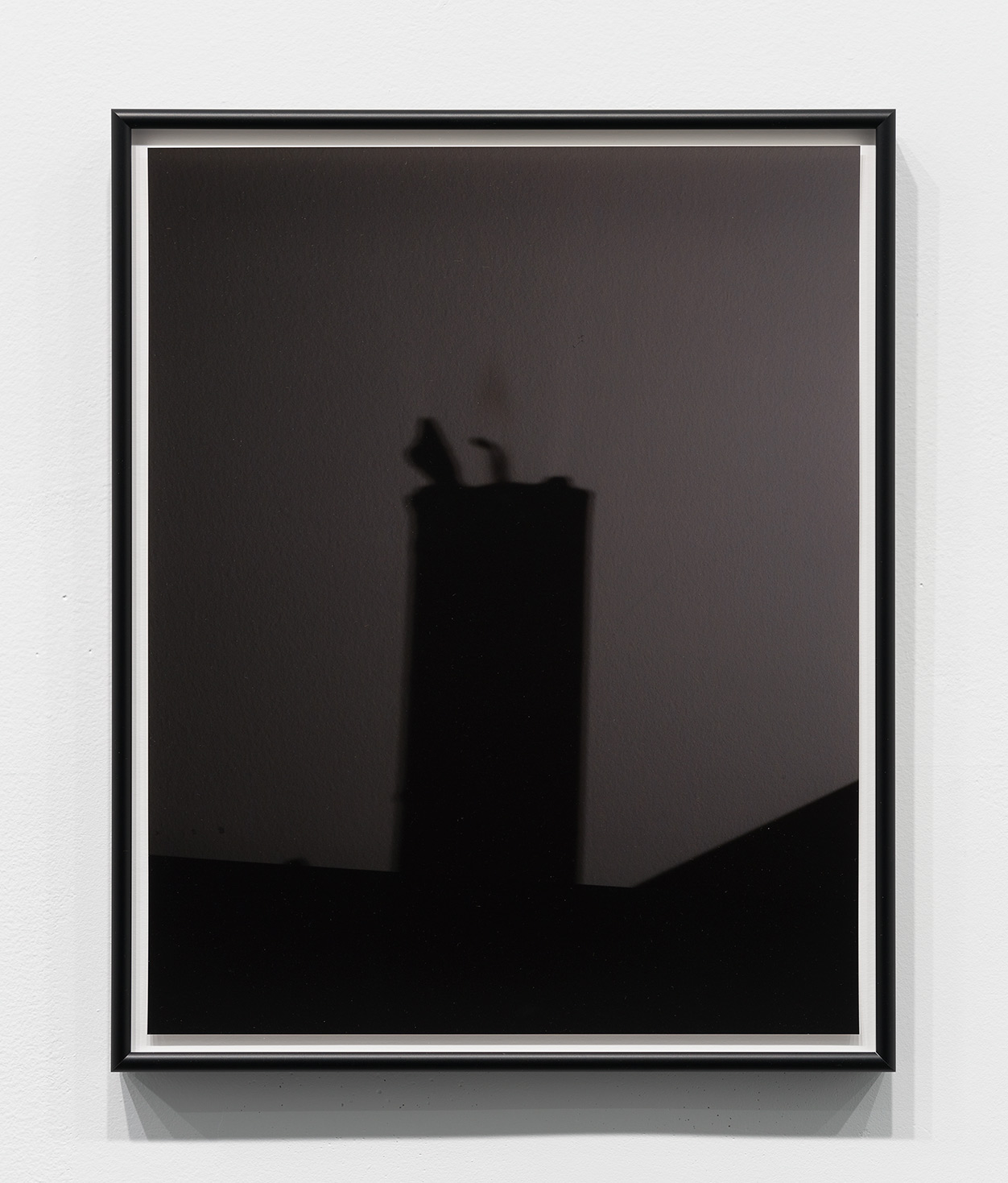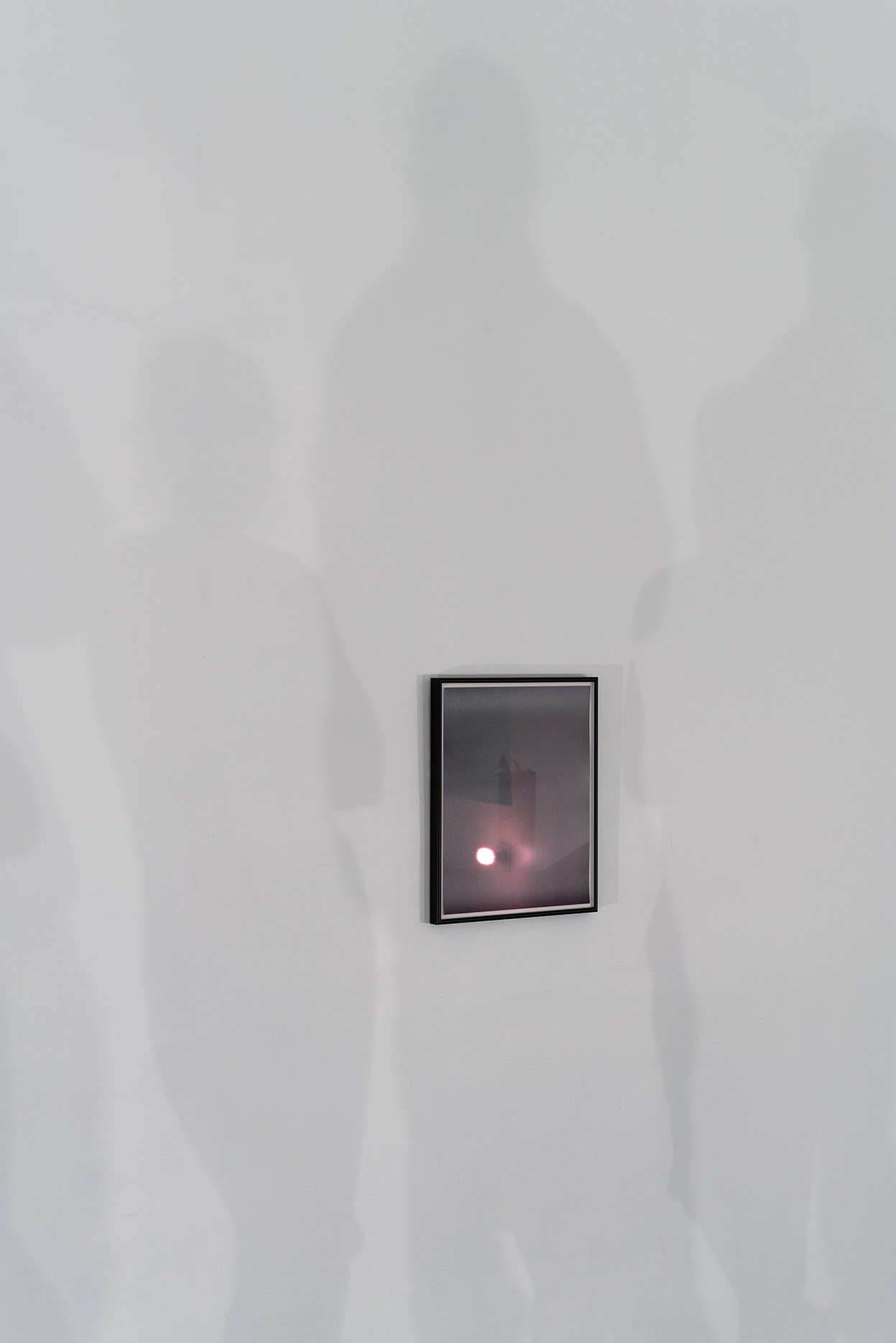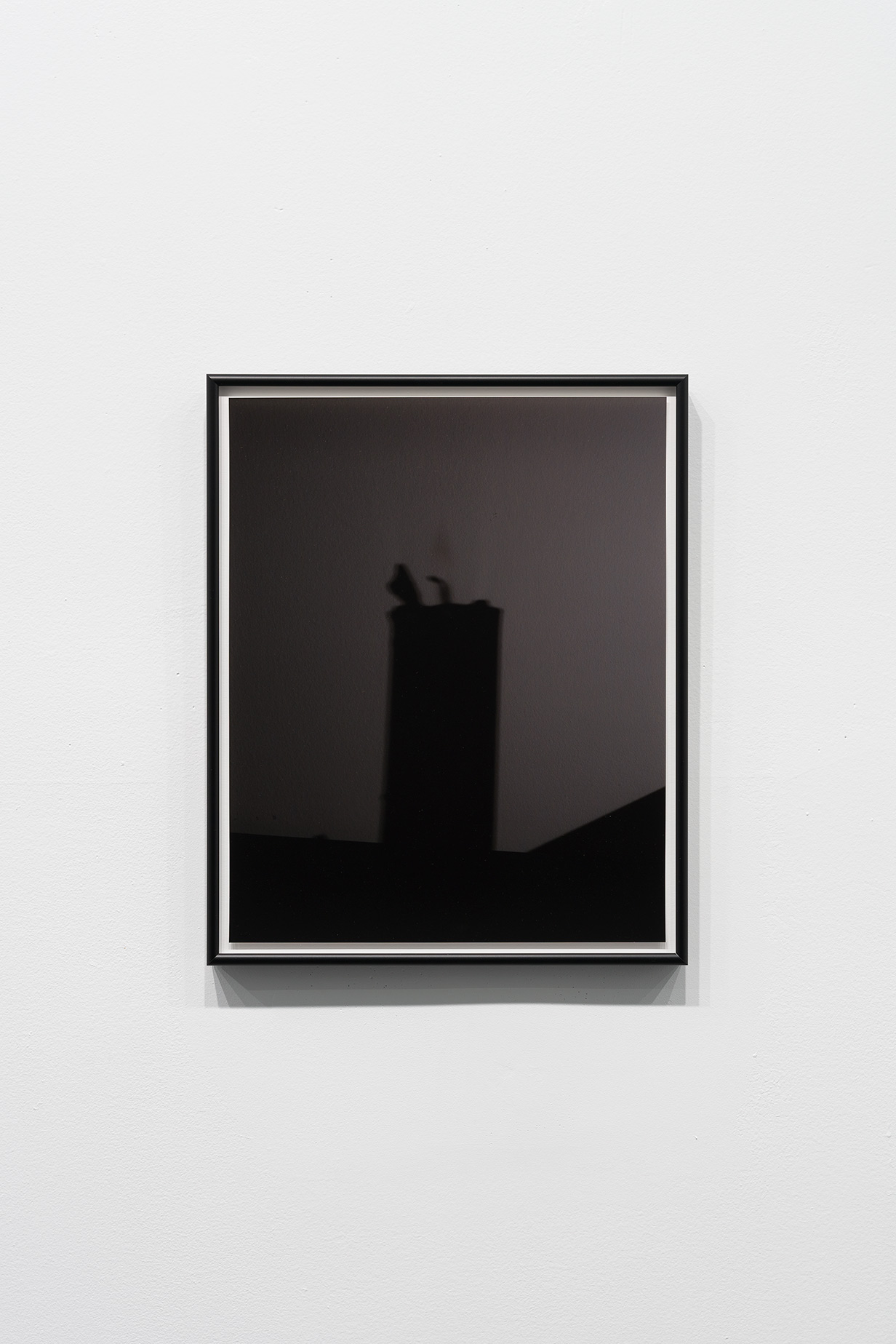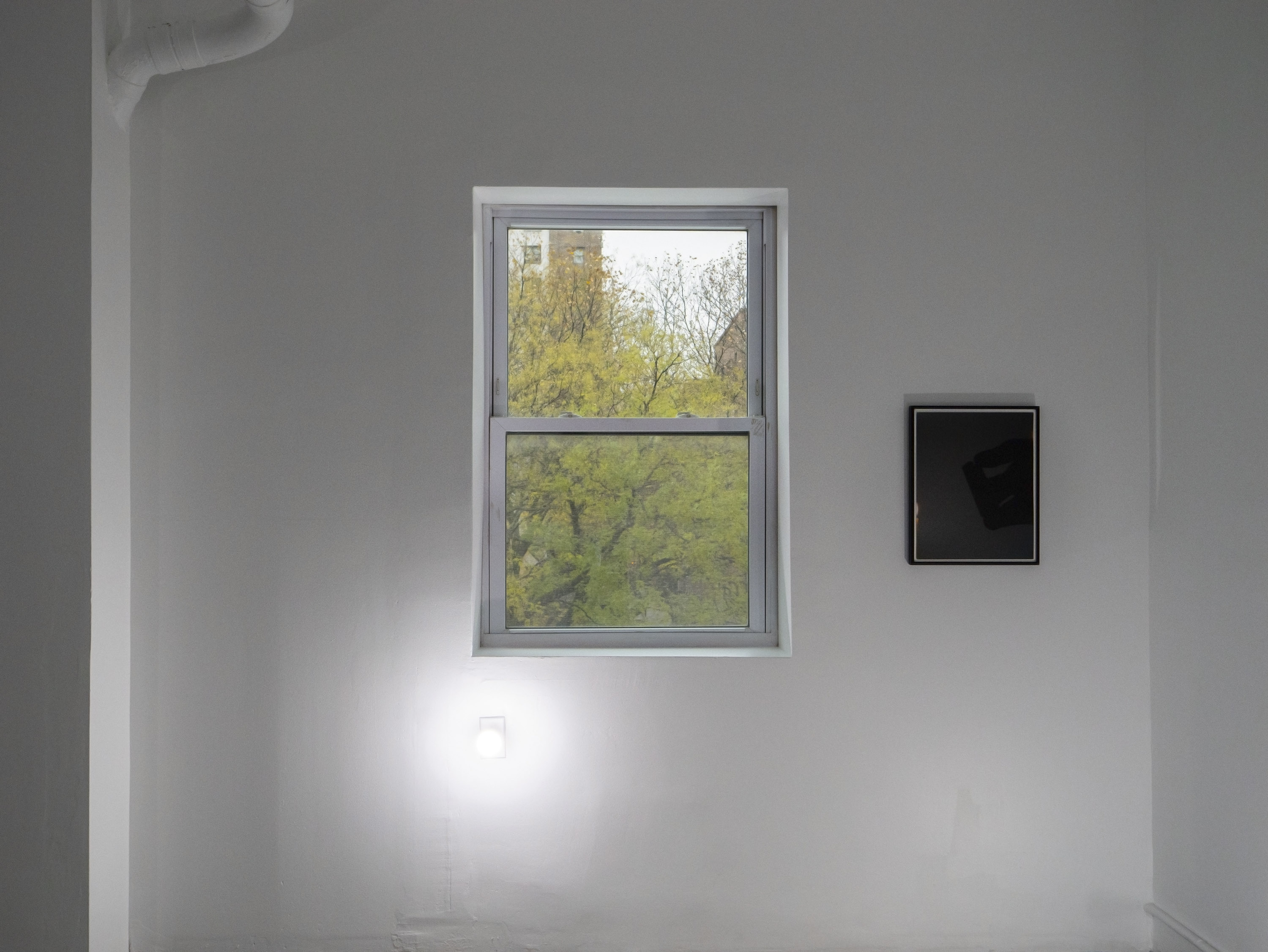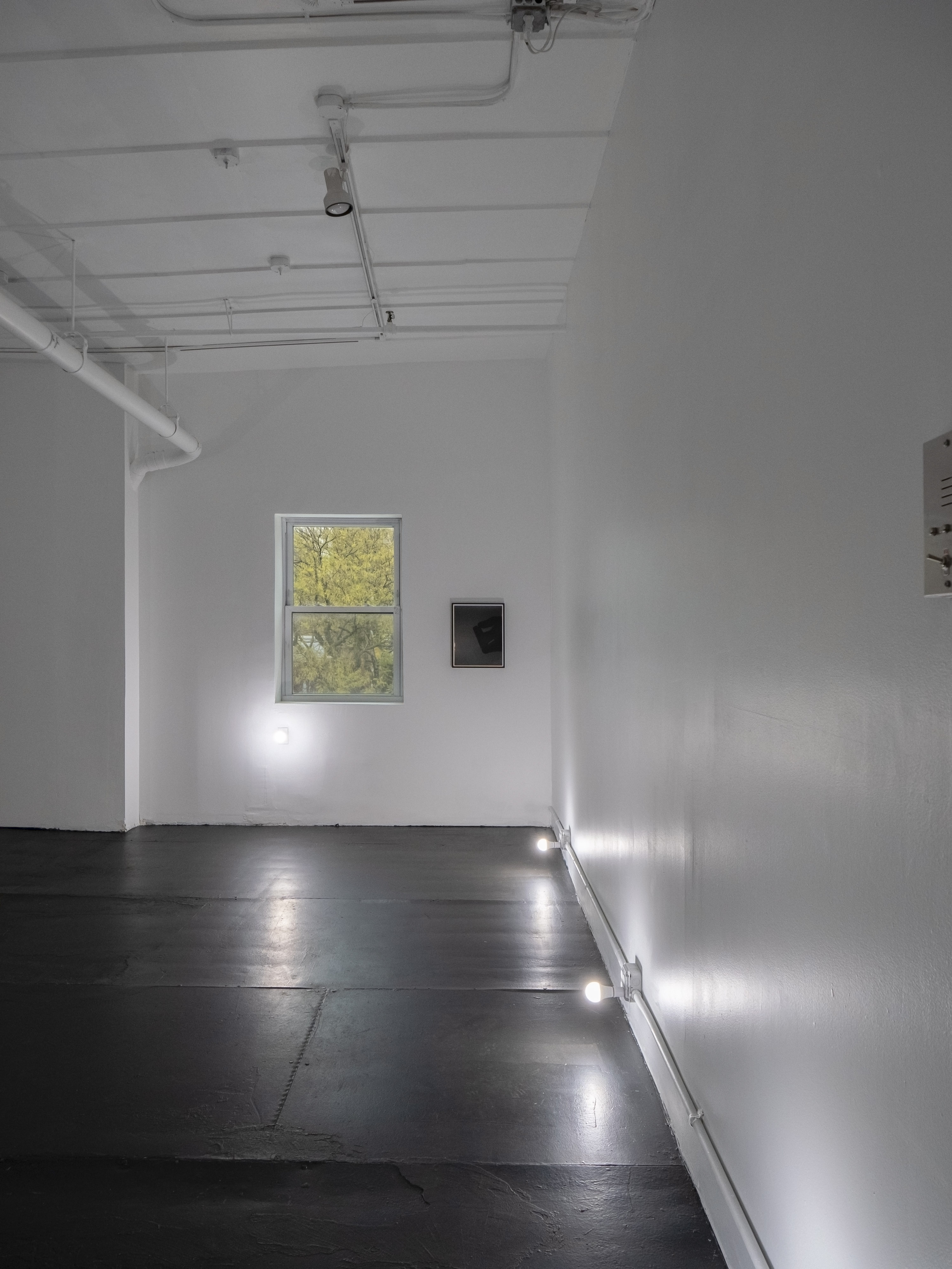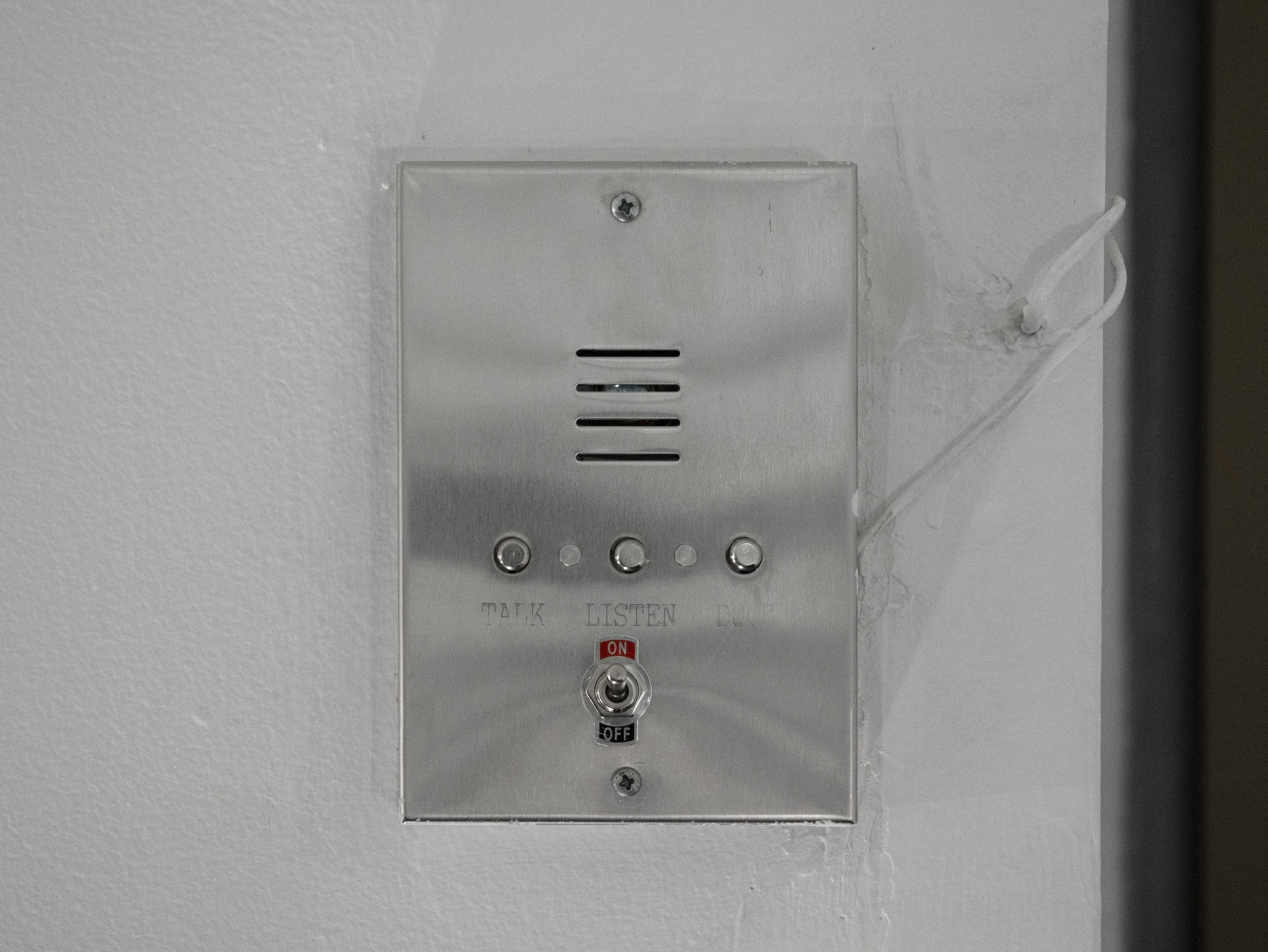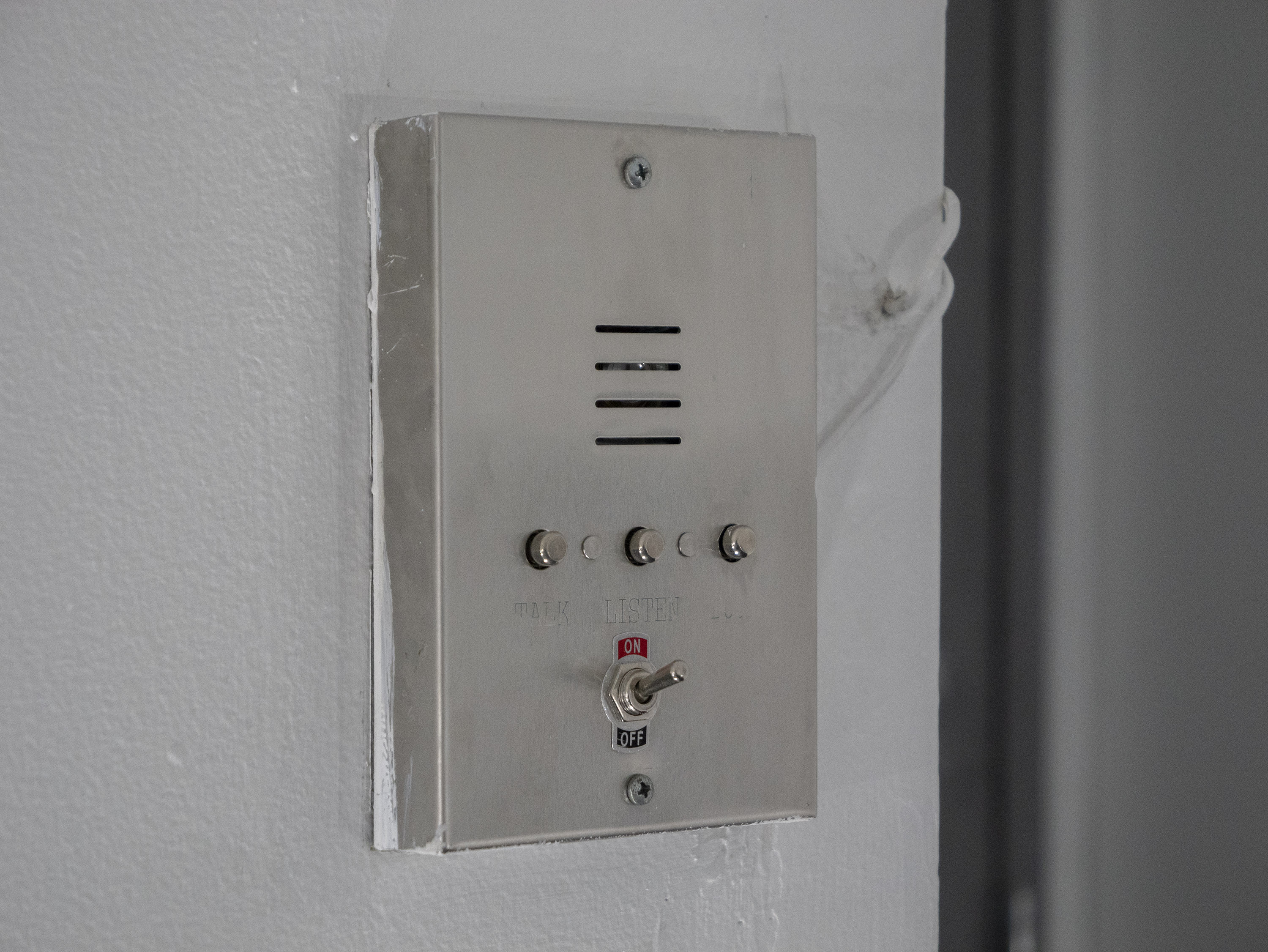Jason Hirata
MINUTES
December 3, 2022–January 28, 2023
MINUTES
December 3, 2022–January 28, 2023
Text Description:
Up four flights of thick and round wooden stairs sits the gallery called Ulrik behind a shaded black door. It’s more or less square, with white walls and black floors, about the size of one of the lined sections of a tennis court. It’s a corner unit. Lots of open space and light is communicated through its two windows. The built-in lighting has been shut off to make way for an artwork called “Inverted Lighting Scheme,” which replaces the overhead lights with bare white bulbs plugged into each of the room's task-level outlets. As visitors move through the space, their shadows are cast in multiple across all that occupies the room. There are a handful of photographs on the walls which are collectively named “Blaise Hirata”. Tightly framed in black, the photos are fairly dark themselves which allows their glazing to reflect much of what surrounds them. The photos are of shadows and candles; smoke; wax; flames; a lighter and a hand. Found in the shadows of the candle is the impression that its flame also casts a darkness like any other. Near the door is a work named “Komár”: an intercom that listens continuously to the street below. It’s not loud, and there’s not always action down there. Mostly it transmits the sound of air, engines, the occasional car horn, and bits of conversation in passing, but it’s likely that anything is possible on West 17th street. Finally, there is a white desk with two chairs, which holds a few papers and cards, and a folder that contains a financial contract. That contract is a loan from the artist to the gallery, and an artwork titled “The Borrowers”.
![The Borrowers (Page 1 of 3), 2022, financial loan, $2,000.00]()
![]()
![Artwork Name: Blaise Hirata; Artwork Title: Glow, 2022, digital C-print, 17 ½ x 14 ¼ in. (44.5 x 36.2 cm.)]()
![]()
![]()
![]()
![]()
![]()
![Artwork Name: Blaise Hirata; Artwork Title: Shade Flame, 2022, digital C-print, 17 ½ x 14 ¼ in. (44.5 x 36.2 cm.)]()
![]()
![]()
![Artwork Name: Blaise Hirata; Artwork Title: Who, 2022, digital C-print, 17 ½ x 14 ¼ in. (44.5 x 36.2 cm.)]()
![Artwork Name: Blaise Hirata; Artwork Title: Column, 2022, digital C-print, 17 ½ x 14 ¼ in. (44.5 x 36.2 cm.)]()
![]()
![]()
![Artwork Name: Blaise Hirata; Artwork Title: Click, 2022, digital C-print, 17 ½ x 14 ¼ in. (44.5 x 36.2 cm.)]()
![]()
![Inverted Lighting Scheme, 2015, lightbulbs, plug adaptors, dimensions variable]()
![]()
![]()
![Artwork Name: Komár; Artwork Title: LISTEN, 2022, intercom, dimensions variable]()
![Artwork Name: Komár; Artwork Title: LISTEN, 2022, intercom, dimensions variable]()
Up four flights of thick and round wooden stairs sits the gallery called Ulrik behind a shaded black door. It’s more or less square, with white walls and black floors, about the size of one of the lined sections of a tennis court. It’s a corner unit. Lots of open space and light is communicated through its two windows. The built-in lighting has been shut off to make way for an artwork called “Inverted Lighting Scheme,” which replaces the overhead lights with bare white bulbs plugged into each of the room's task-level outlets. As visitors move through the space, their shadows are cast in multiple across all that occupies the room. There are a handful of photographs on the walls which are collectively named “Blaise Hirata”. Tightly framed in black, the photos are fairly dark themselves which allows their glazing to reflect much of what surrounds them. The photos are of shadows and candles; smoke; wax; flames; a lighter and a hand. Found in the shadows of the candle is the impression that its flame also casts a darkness like any other. Near the door is a work named “Komár”: an intercom that listens continuously to the street below. It’s not loud, and there’s not always action down there. Mostly it transmits the sound of air, engines, the occasional car horn, and bits of conversation in passing, but it’s likely that anything is possible on West 17th street. Finally, there is a white desk with two chairs, which holds a few papers and cards, and a folder that contains a financial contract. That contract is a loan from the artist to the gallery, and an artwork titled “The Borrowers”.
